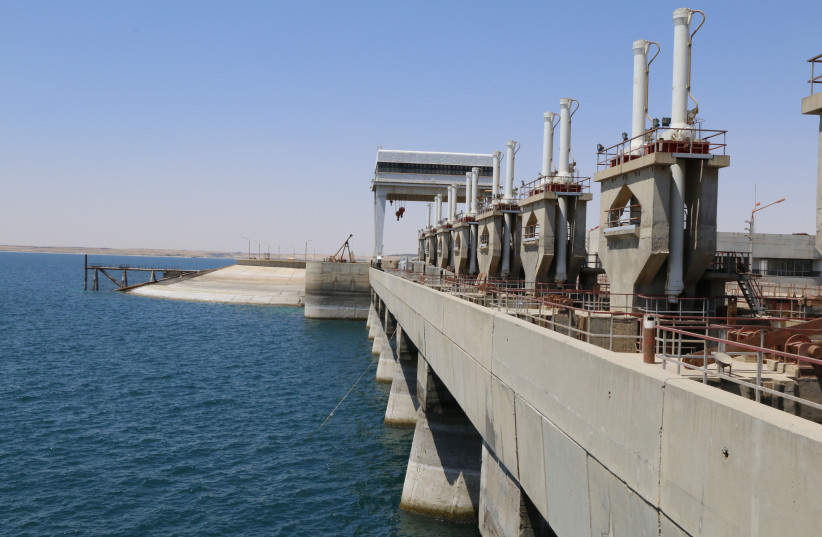The US State Department is expected to give written permission for Egypt to send gas to Lebanon by way of Syria in the coming days, a diplomatic source said on Tuesday.
Egypt has sought in recent months to aid Lebanon in its ongoing economic and energy crisis by exporting gas to Lebanon, which it would have to do via Jordanian and Syrian pipelines to circumvent Israel.
The proposal drew media attention in Israel because Israel exports natural gas to Egypt, which means Lebanon could end up using gas originating in Israel’s economic waters, even though the countries do not have diplomatic relations. However, Israel has no involvement with the plan and Egypt does not need Israel’s permission to pass the gas on to third parties.
Cairo has sought a written promise from Washington that it would not be subject to sanctions under the Caesar Act, which sanctioned the government of Syrian President Bashar Assad for war crimes, the source said.
In that vein, Syria would not be receiving any money for transferring gas to Lebanon. The diplomatic source posited that Syria agreed to take part in the plan in order to rebuild its ties with other Arab states.

A State Department spokesperson said that the US has “not lifted or waived sanctions, and we do not support any efforts to normalize relations with Syria or rehabilitate Assad until there is irreversible progress toward a political solution. Until such time, we will continue to enforce our Syrian sanctions program in coordination with our regional partners.”
At the same time, the spokesperson said the US government is working with countries in the Middle East to help the Lebanese people in a way that is consistent with the Caesar Act.
The State Department understands that electricity to Lebanon must go through the Syrian grid, the spokesperson said, but “our robust sanctions regime against the Assad government remains fully in force.”
“We welcome regional efforts to help address Lebanon’s acute energy crisis and its implications for the stability of the Lebanese state,” the spokesperson said. “The lack of fuel and power in Lebanon continues to threaten the delivery of critical services like healthcare and water to the Lebanese people.”
